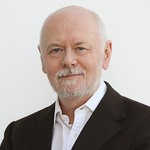Blog
From the Editor's Desk (September 2013)
24 September 2013
Tony Addison
As Helsinki moves into a crisp sunny autumn, Angle brings you news of two big UNU-WIDER events. ‘Egalitarian Principles: The Foundation for Sustainable Peace’ was the topic of the 17th WIDER annual lecture, given by former President of Finland and Nobel Peace Prize Laureate, Martti Ahtisaari. Some 400 people attended the Annual Lecture (with an additional 200+ joining us online). The lecture included a video welcome by Nobel Laureate, Amartya Sen—who was closely associated with the creation of UNU-WIDER and its early days—as well as a panel of three discussants: Ravi Kanbur, Elsie Kanza, and Martin Ravallion. (If you missed the event you can still watch it online here.) The Annual Lecture preceded our two-day conference on ‘Inclusive Growth in Africa: Measurement, Causes and Consequences’, attended by some 200 researchers and policy makers. All in all, we had over 800 folk following our three days of events, either in person or online.
This month’s Angle includes an initial report on the Inclusive Growth conference, penned by Roger Williamson of the Institute of Development Studies, Sussex University. Many African researchers attended the conference, and it was a delight to see so many early career researchers. The Ghanaian contingent was especially strong. For those of you who missed the event, videos of the sessions will be appearing shortly on the event website www.wider.unu.edu/inclusivegrowth. This page has also all the papers and presentations from the event.
Africa has been a big theme for UNU-WIDER this year, with the Inclusive Growth conference following on from ‘L2C—Learning to Compete: Industrial Policy and Development in Africa’ another large development conference, held in June 2013.
Our staff article this month is by Rachel Gisselquist and Miguel Niño Zarazua, who lead the governance and fragility, and also the social sectors themes in the ReCom project, respectively. Rachel and Miguel discuss their shared sub-project ‘Experimental and Non-Experimental Methods to Study Government Performance: Contributions and Limits’. This project concentrates on what is gained, and lost, through the use of randomized controlled trials versus other approaches (e.g., quasi-experimental designs, survey techniques) and the possibilities of employing new techniques in the design and analysis of randomized experimental trials that can improve their ability to speak beyond the narrow context of the experiment.
Carl-Gustav Linden from UNU-WIDER reports on the debates of the Inclusive Growth conference on the hot topic of African data (parallel session 2.3). Data, especially very good data, is crucial if we are to monitor progress in development more effectively, especially for poor people.
In GuestAngle, we welcome Andy Sumner from Kings College, London. Andy’s work on the graduation of low-income countries to middle-income status is becoming well known, and in this article he reflects on the implications for poverty and aid policy. And Roger Williamson’s report on the Inclusive Growth conference has already mentioned.
With 90+ working papers so far in 2013, our latest batch includes many from our ReCom programme. Maureen Seguin and Miguel Niño-Zarazúa focus on action in the area of childhood diseases; Kevin Gray looks at the early days of aid in East Asia; David Victor discusses foreign aid and climate change; and Behan Abegaz assesses aid and accountability in building Ethiopia’s institutions. Other ReCom related working papers include Una Okonkwo Osili on non-traditional aid and gender; Axel Dreher, Kai Gehring, Matt Andrews analyse how governments become great governments, and Stephan Klasen focuses on gender inequality and aid. Other new UNU-WIDER working papers cover decentralization in Uganda, the social sectors, renewable energy in southern Africa; and the food price crisis. You can see and download them all here:
ResearchAngle this month has two summaries on the gender sensitivity of World Bank investments by Claire Lauterbach and Elaine Zuckerman, and aid as a catalyst for pioneer investment by Paul Collier. These excellent summaries offer a rapid way to stay on top of, or catch up on, our work on aid under ReCom. More are available here:
This month’s VideoAngle, is an interview by Roger Williamson with Martin Ravallion of Georgetown University. Martin is very well known for his work on poverty down the years, and he gave the first keynote at our conference on Inclusive Growth held just last week here in Helsinki. This was a fascinating discussion of anti-poverty thinking and policy over 200 years. You can view all of our videos online here.
As we now head further into autumn and the trees continue to turn red, gold and brown, Angle returns in October to bring you news of UNU-WIDER’s events and publications in the last part of 2013. If you are in the northern hemisphere, do keep warm. If you are in the southern latitudes, do send us some sunshine. It’s always welcome.
Tony Addison is Chief Economist-Deputy Director, UNU-WIDER.
WIDERAngle newsletter
September 2013
ISSN 1238-9544
 Join the network
Join the network
